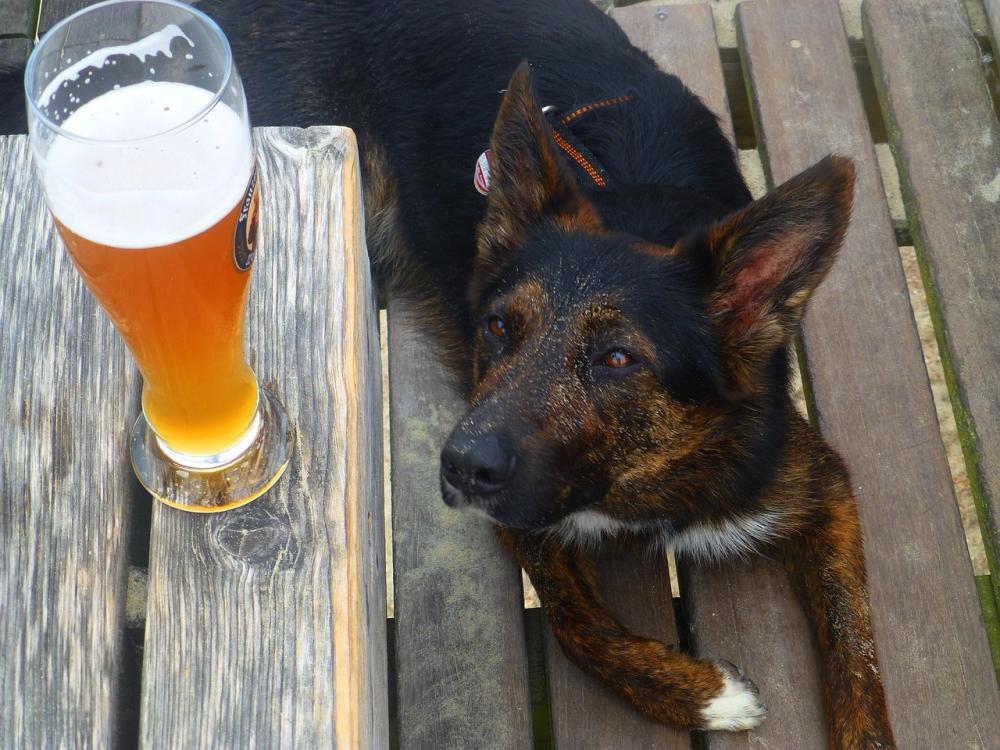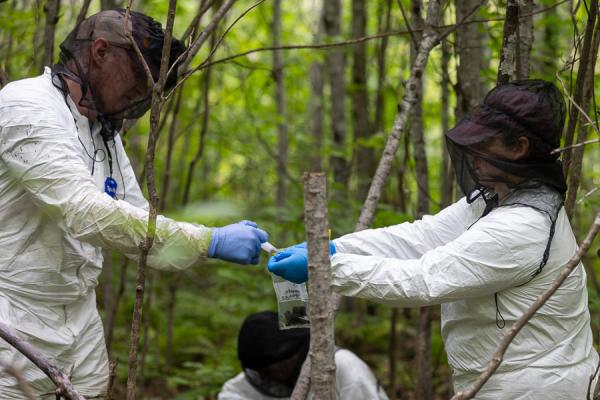A bitter brew: New research examines the toxic effects of a homebrewing staple on dogs
October 9, 2023

Image by Gabriela Fink from Pixabay
A study led by Dr. Kelly Tart, Professor of Emergency and Critical Care in the Department of Veterinary Clinical Sciences, explores the toxic effects of hops ingestion in dogs, which can cause a potentially fatal condition called malignant hyperthermia. Hops, commonly used in beer production, have become more common in the home as homebrewing has gained popularity, increasing the risk of dogs accessing these substances.
The study, which is the largest of its kind to date, analyzed data from 177 cases reported to the Pet Poison Helpline (PPH), an animal poison control center, between 2005 and 2018. Key findings include:
- Clinical signs were observed in 74% of dogs after ingesting hops, with tachypnea (rapid breathing), hyperthermia (increase in body temperature), and vomiting being the most common symptoms.
- Rapid onset of symptoms was noted, typically occurring within 8 hours of ingestion.
- Four dogs out of 177 died due to hops ingestion, all exhibiting severe hyperthermia and other signs consistent with malignant hyperthermia, a syndrome characterized by uncontrolled calcium release in skeletal muscles, leading to muscle rigidity, increased core body temperature, tachypnea, and cardiac arrhythmias, which can be fatal.
- The study also observed an increase in cases related to hops ingestion over time as homebrewing has become more popular (consistent with data from the Home Brewers Association), highlighting the need for pet owners to be aware of the risks.
- It was noted that some dogs survived without veterinary intervention, but owners often struggled to recognize clinical signs accurately, emphasizing the importance of prompt veterinary evaluation when hops ingestion is suspected.
The study concludes that while the prognosis for hops toxicity is generally good, severe cases can occur, and further research is needed to understand the exact mechanism and improve treatment protocols. Furthermore, understanding the connection between hops ingestion and malignant hyperthermia in dogs is crucial in managing this potentially life-threatening condition.
“We’re grateful for collaborations with PPH, which allow us to examine and bring to the forefront the toxicoses that our pets can be exposed to in their normal environments.” says Tart. “All pet owners should have the PPH number (or anther Pet Poison contact) available for consultation in case a pet consumes something not intended for their ingestion. These resources can advise owners on an immediate plan—which may be life saving!”
Read the full study in the Journal of Veterinary Emergency and Critical Care.


